First minister's questions will begin at 12pmpublished at 11:57 BST 22 September 2016
First minister's questions will begin at 12pm, despite the delay to general questions.
MSPs take evidence on intergovernmental relations post-Brexit
Ministers are quizzed during a split general questions
Opposition MSPs quiz Nicola Sturgeon during first minister's questions
Scottish Conservative MSP Margaret Mitchell leads this lunchtime's member's debate entitled 'The Standing Safe Campaign'
The government leads a debate on reforming local taxation
Culture Secretary Fiona Hyslop leads a debate on securing Scotland's position as the perfect stage for events
Craig Hutchison and Colin Bell
First minister's questions will begin at 12pm, despite the delay to general questions.
In April the UK government's new National Living Wage (NLW) came into effect.
Essentially, it meant the minimum wage for those over 25 years old has risen by 50p per hour - from £6.70 an hour to £7.20.
There were concerns that some care businesses in Scotland would not be able to afford the increase, and may have to close.
 Image source, SPL
Image source, SPLThe pay increase means about £900 a year extra for full-time workers, and some care service providers say if they don't get more money from the Scottish government they may have to close.
The Scottish government says it has budgeted £250m in 2016/17 to be invested in social care, and that figure has been accepted by all local authorities.
This sum is based on paying care workers £8.25 an hour - the figure that campaigning group the Living Wage Foundation has been lobbying for - and the Scottish government says it will give 40,000 people, mainly women, doing valuable work a pay rise.
Scottish Labour MSP Colin Smyth asks the Scottish Government how much paying at least the living wage to social care workers from October 2016 will cost health and social care partnerships.
SNP MSP David Torrance asks how the government encourages investment in and the development of energy storage systems, and what further support it will offer over the next five years.
Rural Economy Secretary Fergus Ewing says the government is using a GIS system supplied ESRI.
Mr Ewing says the land parcel identification system is being updated.
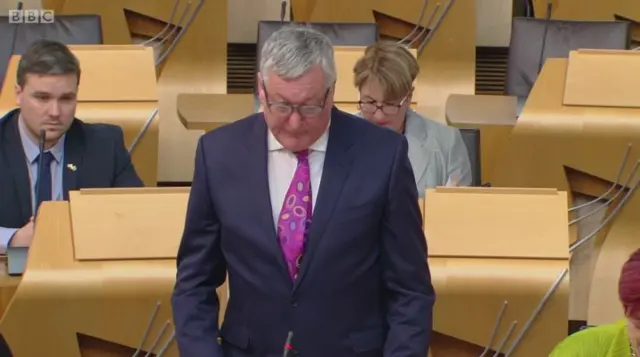
Tory MSP Peter Chapman stresses the importance of getting the mapping system right.
The cabinet secretary says the Audit Scotland report does not criticise the mapping system.
He says the national rural loan scheme will provide £300m later this year.
SNP MSP Emma Harper asks what type of digital mapping system it uses for making rural payments.
Presiding Officer Ken Macintosh gets proceedings underway.
A member of the public has taken ill, leading to this delay to the start of general questions.
General questions is yet to get underway, unusually.
General questions will now get underway, after a short delay, with ministers being quizzed by MSPs.
We will, as ever bring you extensive coverage of first minister's questions, after general questions.
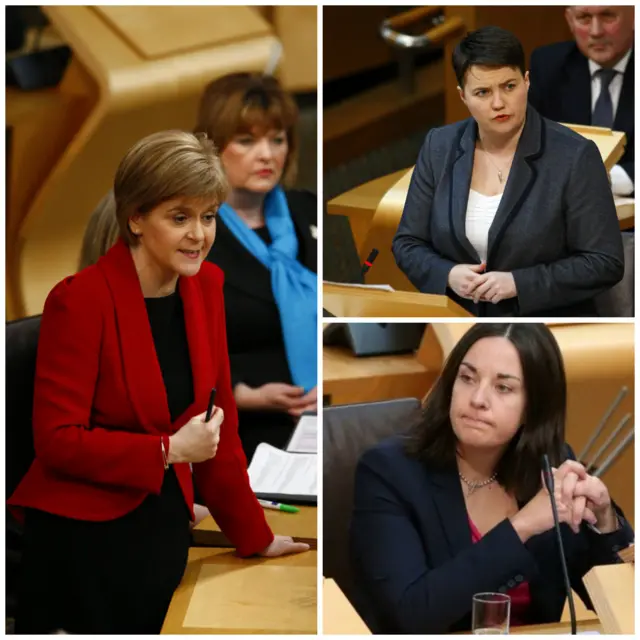 Image source, bbc
Image source, bbcThe lunch time member's debate is entitled 'The Standing Safe Campaign', launched by the University of the West of Scotland to raise awareness about sexual violence on campus.
The two debates dominating this afternoon session in the chamber focus on local tax reform and how to secure large events for Scotland.
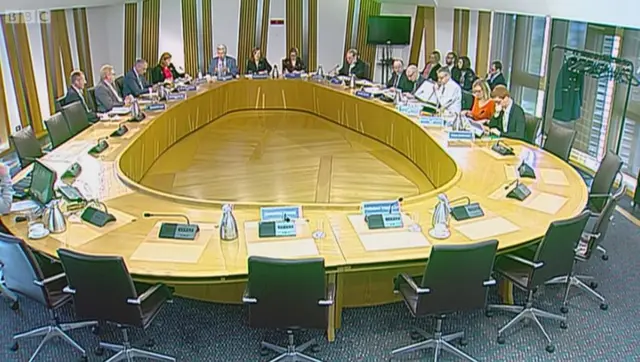
Labour MSP Lewis Macdonald says he welcomes the legislation given recent events in the Middle Eaast and says this bill will criminalise black market deals with stolen cultural items.
SNP MSP Richard Lochhead agrees that the horrific theft of cultural heritage must be combated.
The committee agrees to recommend the parliament give consent to the legislative consent memorandum.
The draft motion, which will be lodged by the culture secretary is:
"That the Parliament agrees that the Cultural Property (Armed Conflicts) Bill, introduced to the House of Lords on 19 May 2016, which provides for the introduction of measures to enable the ratification by the United Kingdom of the Hague Convention for the Protection of Cultural Property in the Event of Armed Conflict of 1954 and the Protocols to that Convention of 1954 and 1999 and which so far as applying to Scotland is within the legislative competence of the Scottish Parliament, should be considered by the UK Parliament."
The UK Cultural Property (Armed Conflicts) Bill is intended to enable the UK to implement the Hague Convention for the Protection of Cultural Property in the Event of Armed Conflict of 1954 and the Protocols to that Convention of 1954 and 1999.
That concludes the second evidence session and the committee suspends briefly.
MSPs now consider the legislative consent memorandum Cultural Property (Armed Conflict) Bill (UK Parliament legislation).
Christos Sirros from the Québec Government Office in London says in terms of international agreements there has not been a case where there has been a veto by the national assembly that has been brought forward.
Mr Sirros says the facility is there though.
Allow X content?
This article contains content provided by X. We ask for your permission before anything is loaded, as they may be using cookies and other technologies. You may want to read X’s cookie policy, external and privacy policy, external before accepting. To view this content choose ‘accept and continue’.
The Canada option
The Comprehensive Economic and Trade Agreement (Ceta) between the EU and Canada is not yet in force, although it has been in the making for seven years.
It gives Canada preferential access to the EU single market without all the obligations that Norway and Switzerland face, eliminating most trade tariffs. However, some "sensitive" food items, including eggs and chicken, are not covered by it.
Canadian exporters will have to prove that their goods are entirely "made in Canada", which imposes extra costs, to prevent imports entering the EU through a "back door".
 Image source, Getty Images
Image source, Getty ImagesThe services sector is only partially covered by Ceta.
Crucially, a Ceta-type deal would not give UK financial services the EU market access that they have now. It would be hard for London-based banks to get "passporting" rights for their services in the EU - rights that they value hugely now.
It would also mean that firms that export to the EU would have to comply with EU product standards and technical requirements without having any say in setting them.
And critics of such a plan point out that the UK has a complex web of ties to the EU - much more than Canada.
Christos Sirros from the Québec Government Office says the trade deal between Canada and the EU took six years.
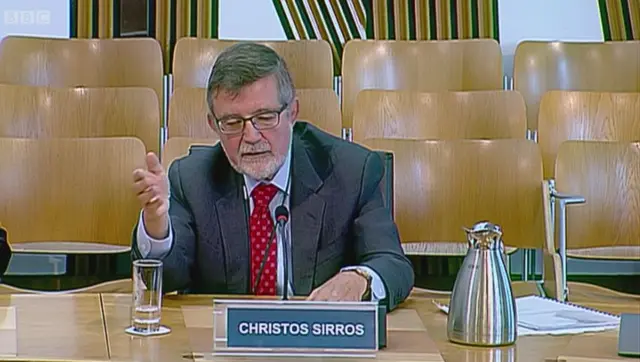
However this was not solely due to the involvement of the provinces, he says.
Mr Sirros says there were certain issues related to the provinces, like cheese in Québec.
Inter-governmental relations in Canada are only institutionalised with respect to their bureaucratic organisation:
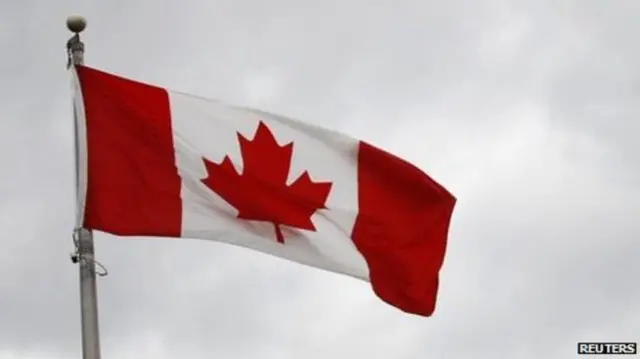 Image source, Reuters
Image source, Reuters